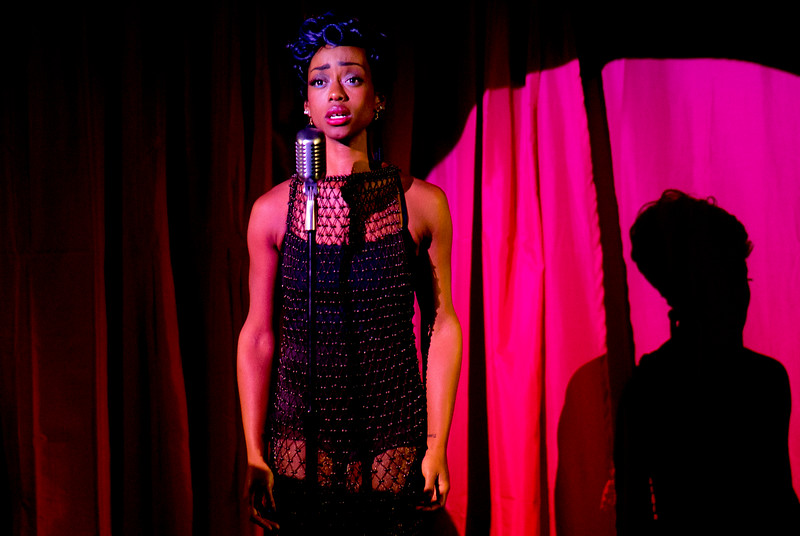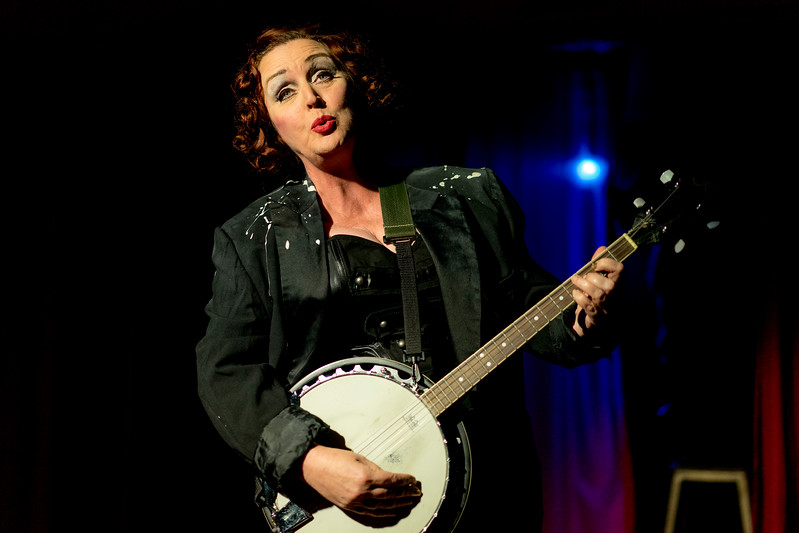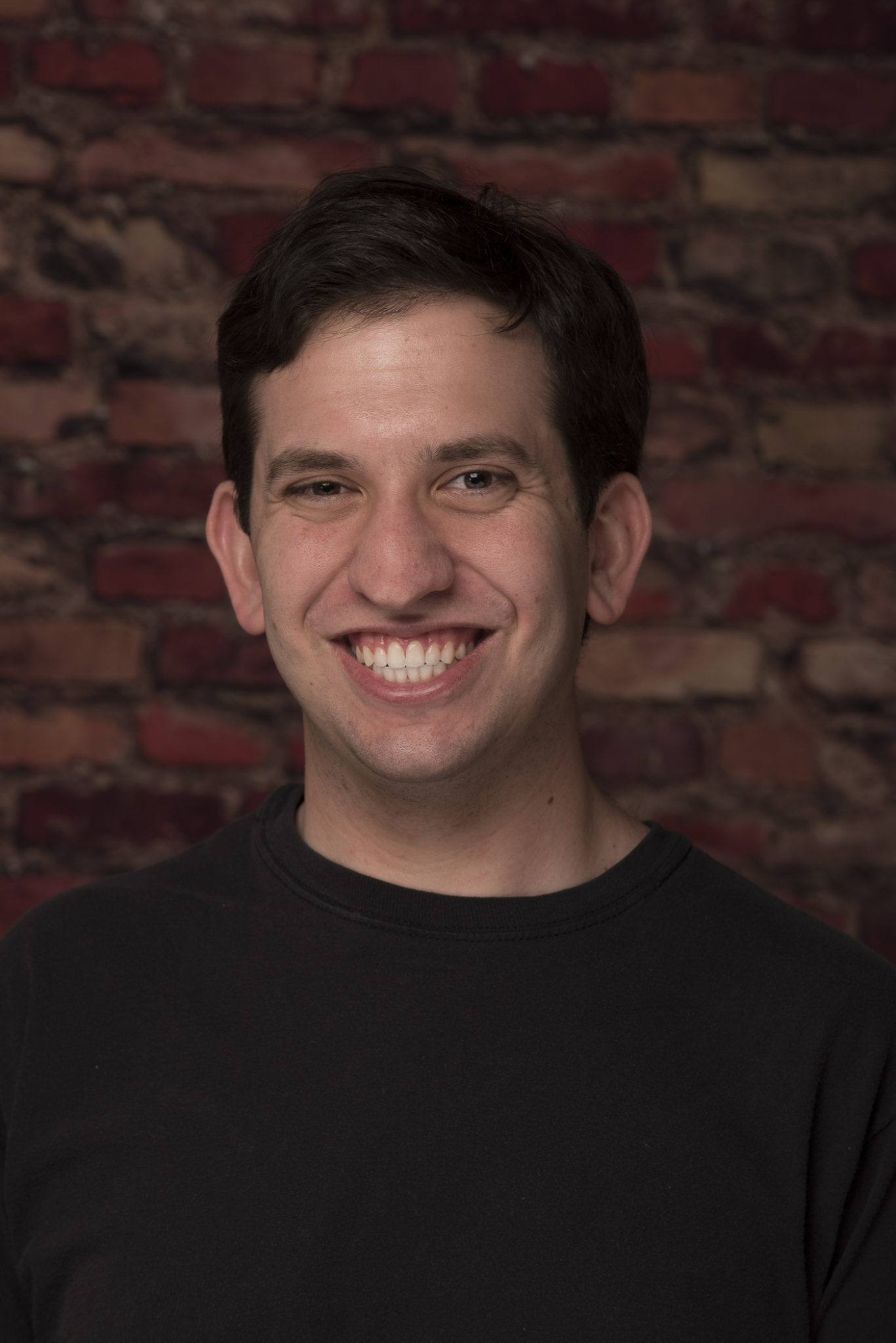Escaping From the Horrors of Humanity

Cashae Monya. (Photos courtesy of Daren Scott.)
Taking its inspiration from the 1998 Broadway revival, Ion Theatre’s production provides bleak social commentary while also showcasing the talents of a 14-person ensemble.
Starting out in 1930’s Berlin, Cliff Bradshaw (Drew Bradford) is a poor writer who goes to Germany so that he can focus on his novel. After moving there, Cliff finds himself stopping by the Kit Kat Klub, a raunchy nightclub in Berlin.
Cliff starts to fall for the British star at the club, Sally Bowles (Cashae Monya). After Sally gets fired, she moves into his new apartment and and they begin a romantic relationship just as the Nazi party starts to attain prominence and rise to power in Germany.
Ion is known for intelligently risky stagings, and Cabaret is no exception. Founder/Executive Artistic Director Claudio Raygoza makes several major choices as a storyteller to create a uniquely immersive interpretation.
Most of the audience sits in normal theater seats, while a few VIP theatregoers sit at tables in the front row. Performers occasionally interact with the Hillcrest visitors in ways that tie in cleverly to both Joe Masteroff’s book and John Kander and Fred Ebb’s music.
Typically, it is one star who plays the Emcee at the Kit Kat Klub, but, here, two performers portray the wickedly irreverent Master of Ceremonies. Linda Libby and the young actor, Scotty Atienza, each play hosts to the wild and exciting action that occurs.
Libby and Atienza provide crude humor during songs like “Wilkommen,” “Two Ladies” and “Money.” Their roles aren’t just meant to entertain, as the professional relationship between them ties into the grim messages of the show.
Another unique aspect about Raygoza’s vision is that almost all the artists, including musical director/accompanist/supporting performer/pianist Morgan Carberry, are also members of the Cabaret band. Whether they are offstage, or dancing to Michael Mizerany’s bawdy choreography, there are still plenty of enjoyable sequences where the cast are able to visually contribute to songs with instruments such as the banjo, kazoo and mandolin.
On the Elaine Lipinsky Stage, Raygoza’s set, Keira McGee’s costumes and Chad Oakley’s lighting don’t downplay the risqué elements that Cabaret is known for.
Scenes at the nightspot are so well staged that it does take a few minutes for the more traditional segments in Cliff’s apartment building to fully click. One specific moment where this situation manifests itself is a scene when Cliff’s boarding house owner,
Fraulein Schneider (Li-Anne Roswell), croons the upbeat melody “So What.”
When Roswell performed the song on opening night, she barely moved around the venue, which made the number feel stiffly staged. However, once “So What” was finished, Roswell’s depiction of Schneider started to grow in impact.
Acting as the audience surrogate, Bradford displays an overall sense of moral decency in playing the aspiring author. His duet with Monya on “Perfectly Marvelous” is a romantic highlight of the night.

Linda Libby.
Adding to the drama is the way the characters change through the story. When Cliff first gets to Berlin, everyone he encounters appears to be either friendly or goodhearted. Once the Nazis grow in influence and power, those close to him react in ways that reveal their true personalities.
Masteroff’s depiction of the rise of National Socialism is shocking to watch. While there isn’t a lot of intolerance displayed through Act I, the impact of the Nazis’ brutal philosophy is keenly felt over the course of Act II.
Thrilling, and ultimately very tragic, Cabaret reminds 21st century San Diegans about the dire consequences of authoritarian evil. Late attendees were turned away in the first couple of performances, so get to this party on time.
[box] Show times are Thursdays at 8:00 p.m, Fridays at 8:00 p.m, Saturdays at 4:00 p.m and 8:00 p.m and Sundays at 8:00 p.m. [/box]

A fan of theatre from a young age, David Dixon began writing reviews while in middle school, for Union Tribune’s Rated G column and sdcnn.com. He was the Entertainment Editor for SDSU’s The Daily Aztec. Currently, he contributes to San Diego Community News Network, a regional reviewer for Talkin’ Broadway, an interviewer for San Diego Theatre Reviews and has won several San Diego Press Club Excellence in Journalism Awards. David is a San Diego Theatre Critics Circle member, an American Theatre Critics Association member & Regional Theatre Tony Award voter.


